Roberto was 7 when he witnessed the murder of his grandfather. In the late 1970’s and early 1980’s, the civil war ran rampant in Guatemala’s Northwestern Highlands. Rural villages were used as pawns by both the army and guerrillas to get what they wanted. Any sign of resentment or alliance with the other side most likely meant automatic death. Sometime in 1976, Guerillas were in Roberto’s village terrorizing the people. When they came to his family, he watched as they pulled the trigger on his grandfather. The shot didn’t kill him at first. When the Guerillas saw this, they chopped off all his limbs and then his head. The Guerillas tried to shoot his dad, but the gun stopped working. Afterwards, the gunman took the whole family and locked them inside a house. He was about to set it on fire, when something changed his mind. Instead he demanded they leave instantly. Roberto’s family fled that day and remained in hiding for eight years. When there was finally more peace within the village, they were able to return. During this time, they lost everything they couldn’t carry on their backs.
Today, 22 years after the war, Roberto has made a good life for his family and community. He and his wife Maria have had two healthy children of 13 and 9 years old. Both are attending school, and will continue to for as long as they can afford it. Roberto is also mayor of the village, Aldea de las Conchitas. With good leadership, the village has progressed immensely in the last decade. They have a relatively new middle school, a privilege that many communities aren’t granted. Through a collective effort, the community recently raised money for a health center. The municipality provided them with water tanks after they reached out multiple times. Two years ago, they partnered with Hands For Peacemaking Foundation to install 125 Aller Stoves.
For a village so struck by the civil war, residents don’t come across as victims, but rather a united group demanding a better future for the next generation. There are still many challenges to overcome. Like many other adults, Roberto and Lorenzo barely received an education. The literacy rate in Conchitas is currently around 20%. While there is a middle school, only 50% of children attend it, and only three people are currently attending high school. The village does not have running water, and the tanks given by the municipality are not sufficient.
Roberto works on a day-by-day basis depending on the wealth of the harvest. His salary is low and he can barely afford the everyday necessities of life, let alone save for his children’s educations. Life is not easy, but they refuse to see themselves as helpless. They are grateful for their new Aller stove. They no longer must deal with constant smoke in the house and time and money saved is invaluable. Roberto’s family now saves about Q100 per month on wood. That is equivalent to three days of work. Differences like these are instrumental to families like Roberto’s.
In the future, Roberto’s family and many others in the community could use the support of additional water tanks for their homes. During the dry season, women must walk an hour each way to retrieve water, sometimes multiple times a day. Because of this reason, water projects are in high demand for many communities. While Hands For Peacemaking wants to help, they currently don’t have the resources to meet the demand. Any help counts and makes a huge difference.
By Kate Atwell

